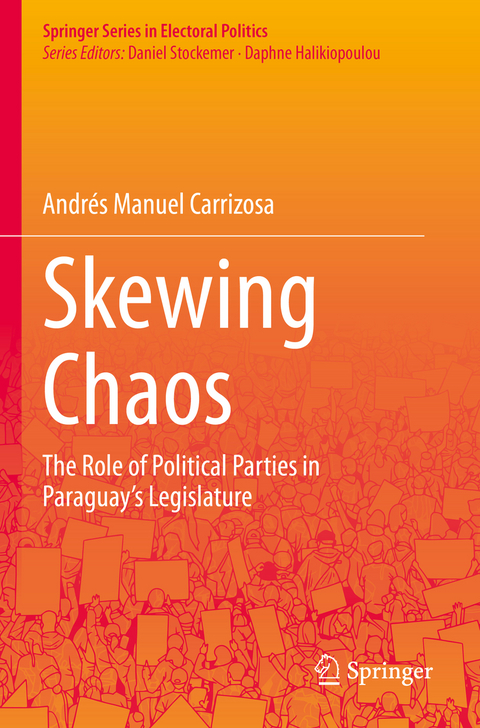
Skewing Chaos
Springer International Publishing (Verlag)
978-3-031-18627-1 (ISBN)
This monograph discusses the role of political parties in Paraguay's legislature. Using Paraguay as a case study, the author analyzes the phenomenon of legislative chaos. While chaos has been expected to exist in legislatures since at least 1785 (Arrow 1951; Condorcet 1785), this phenomenon has not been observable in real-world legislatures for much of history (Tullock 1967; Tullock and Brennan 1981). By showing that chaos exists in Paraguay, and by then proposing a way to incorporate chaos into existing legislative theories, this volume creates a model that is more generalizable to different legislative contexts than what currently exists. Providing a robust theoretical contribution to the study of both legislative politics and Paraguay's political system, this book will appeal to researchers and students studying legislative behavior and Latin American politics.
Andrés Carrizosa is a Paraguayan-American political scientist who was born in Kansas City to two Paraguayan parents. After completing school in Asunción, Paraguay, Andrés received a Bachelor of Arts in Political Science and a Bachelor of Science in Journalism from the University of Kansas. Andrés then went on to complete a Master of Global Politics from the University of Salamanca, Spain, and he subsequently received a Master in Arts and a PhD from Rice University, where he carried out most of the work contained in this book. At the time of submitting this manuscript for publication, Andrés was working in Instituto Desarrollo, a Paraguayan research and higher education institute.
1. Introduction.- 2. The Potential Causes of Legislative Stability.- 3. Preference-Induced Equilibriums I: Weak Ideologies Promote Chaos.- 4. Preference-Induced Equilibriums II: Electoral Incentives Promote Chaos.- 5. Structure-Induced Equilibriums: Weak Agenda-Setting Powers Promote Chaos.- 6. Nondictatorship: Paraguay's Weak Executive Promotes Chaos.- 7. Conclusions: Chaos Exists in Paraguay.- 8. What and Who Parties are for.- 9. Paraguayan Party Formation: Coalition-Building Among Narrow-Interest Groups.- 10. The Expected Effects of Parties on Legislative Outcomes.- 11. A Theory of Fractious Parties.- 12. Skewing Chaos: Partisan Benets Without Legislative Stability.- 13. Conclusions.
| Erscheinungsdatum | 17.03.2024 |
|---|---|
| Reihe/Serie | Springer Series in Electoral Politics |
| Zusatzinfo | XVI, 280 p. |
| Verlagsort | Cham |
| Sprache | englisch |
| Maße | 155 x 235 mm |
| Themenwelt | Recht / Steuern ► Öffentliches Recht |
| Sozialwissenschaften ► Politik / Verwaltung ► Politische Systeme | |
| Sozialwissenschaften ► Politik / Verwaltung ► Vergleichende Politikwissenschaften | |
| Schlagworte | Ideology • LATIN AMERICAN POLITICS • Latin American Studies • legislative politics • Paraguay • Political parties • spatial models |
| ISBN-10 | 3-031-18627-3 / 3031186273 |
| ISBN-13 | 978-3-031-18627-1 / 9783031186271 |
| Zustand | Neuware |
| Informationen gemäß Produktsicherheitsverordnung (GPSR) | |
| Haben Sie eine Frage zum Produkt? |
aus dem Bereich


